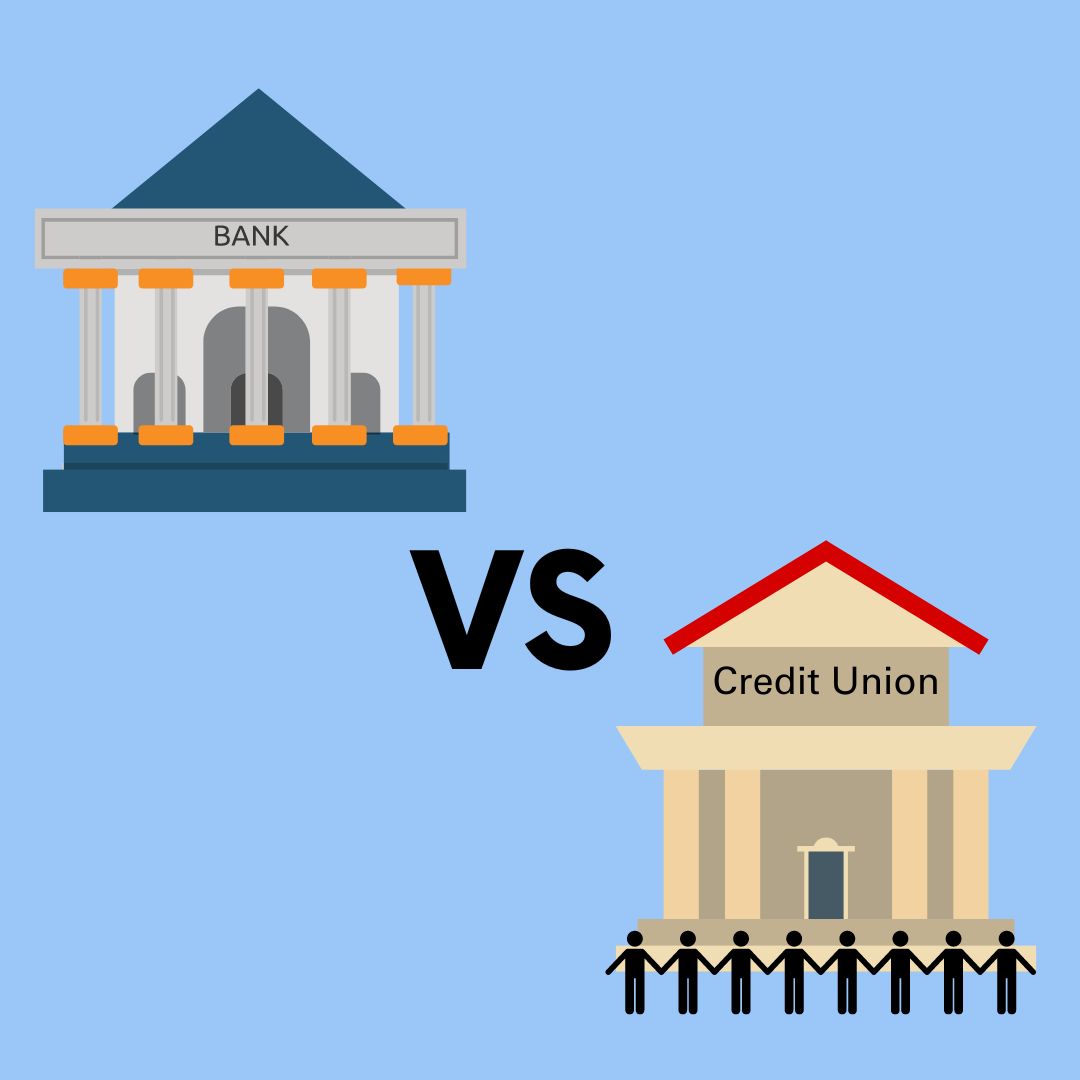This post may contain affiliate links. Read our disclosure here.

I fully believe there should be NO budget room for banking fees. Whether it’s a monthly charge to have an account, or even the dreaded overdraft fee, these are all fees you can avoid. I know that you may view a tiny $2-$3 fee as not a big deal but they add up and at the end of the year you may find you spent way more than the $24-$36 you thought it would be.
Here are some tips to make sure you have the right type of account to start with and then ways to avoid future fees:

Credit Union vs. Bank
In terms of saving money there are some big differences between credit unions and banks that you might want to consider. The biggest difference is in “ownership”. Credit Unions are non-profit institutions that are owned by their customers. Banks are generally for profit corporations.
One would think that being member owned the Credit Union would be the better deal, but you do you need to remember that large banks can have perks just based on the size of their influence.
In terms of fees it is good to look into both options. Realize too that the “in” way to market checking accounts is to call them “free checking” etc. As we all learned in grade school nothing in life is really free, so make sure you take the time to learn about any hidden fees that may (or may not) apply to you.
Some questions to ask:
- Is a Monthly Balance Required?
- Is a Direct Deposit Required?
- How many checks per month can you write?
- How many checks per month can you deposit?
- What are the fees for any additional deposits/withdrawals? (One bank we used charged 25¢ per check over 10 checks per month)
- Are there any free ATM’s to use?
- Is there an extra fee to use a foreign ATM? (Meaning I use an ATM in the mall and am charged $2 at the ATM will the bank also charge a fee for this withdrawal… many do)
- Do you have any overdraft protections that are free? (some credit unions give you free overdraft protection up to a certain amount)
- Is there a monthly fee for online banking, debit cards or other resources?
Ways To Save On Fees
- Shop around.
Just like buying a car, you can’t expect the best deal just walking into the first bank and signing up. Read reviews online, and also read all their account terms online before going to set up accounts. - There is compromise room.
Tell the bank that you are looking around, mention what you are seeing in other areas that you like along with things you like at their institution. Many of them do have the ability to waive a few fees here and there, so it never hurts to ask! - Consider ATM network size and fees strongly.
The largest bank fees paid by most consumers are ATM fees. If you have the choice between a small bank with 3 “fee free” ATM’s versus a larger Credit Union or Bank with a nationwide network of of free ATM’s, this is a huge difference. The average ATM fee for 2024 is around $4.77 according to Bankrate.com. - Use cash back features at grocery stores.
A simple way to avoid ATM fees is to not use them completely. If you are running into the grocery store to buy milk and need cash for a future errand, get your cash with your purchase to save on any ATM fees. Buy something, it’s better than paying $2 or more for absolutely nothing. - Don’t bounce checks.
I know sometimes accidents happen, but this is a lot worse than forgetting to return a library book on time. The average overdraft fee for 2024 is around $35. If you bounce one check a month that could be a cost of $420 a year!! If things are tight, look into a Credit Union or bank that offers an overdraft protection account to protect yourself from unending fees. - Have a paycheck direct deposited.
This is the number one thing that financial institutions love. If you are able to have a direct deposit this can make you eligible for better accounts, and even make them waive more fees on other items. - Keep a cushion in your account.
This is more a personal tip than a professional one… but I want you to put an extra hundred dollars in your checking account and then forget that it is there. Do not put it into your checkbook register, don’t think about it. Believe wholeheartedly that your account is $100 less than the monthly statement shows. This way you have built in your own protection from overdraft. Train yourself to not think about it so that you don’t quickly fall back on it being there.
Do you have any other tips for avoiding bank fees?
Or ideas to help with picking a bank/credit union?


